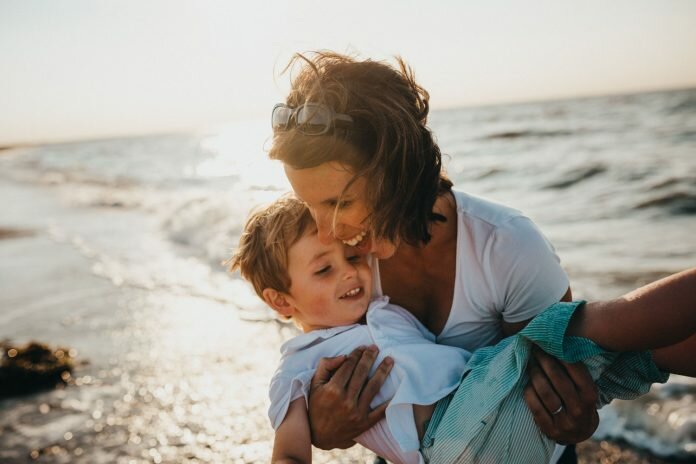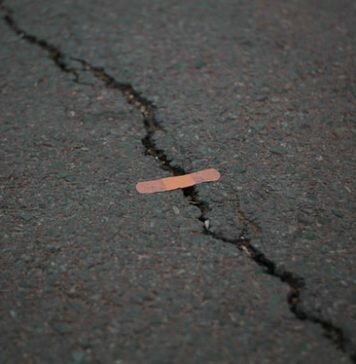I don’t remember the specific date. I have to actually do some math to determine the year. I couldn’t picture the house, and I certainly don’t have the exact address. But I could tell you the way he smelled, beer thick on his breath and the stink of sweat coming from his pores. I could tell you about the spots on the ceiling of the car where the lining was beginning to come unattached and sag. I could tell you how I imagined those sagging spots were clouds, and how I tried desperately to imagine myself floating off, escaping into the clouds. I could tell you how the next morning, true to Tennessee springtime, the grass was wet with dew and there was a very specific scent of wet hay from the nearby fields; how it was early, but already sticky with humidity. I could tell you how I felt a little bit like a frightened animal, trying to gather my things as the sun came up and figure my way out of that place, back home to a version of me that would never be the same.
I will also tell you I had been drinking—Zima, specifically. I hated beer. I still do. I wasn’t drunk, but I wasn’t totally sober either. I was lucid. I remember thinking to myself maybe I shouldn’t go with him to my car. I remember thinking he seemed far more intoxicated than me. I remember everything was fine at first. Just two fairly normal, relatively innocent teenagers making out in a car at a party. Not the first to do that and certainly not the last. I remember thinking things were moving too fast. I remember my body starting to tremble and sweat as I grasped for an answer somewhere in my mind of how to make this stop. I kept moving his hands, telling him:
“Slow down. Not yet. Not now. I’m scared.”
His initial response seemed okay. It stopped temporarily. I caught a breath and for maybe ten seconds, felt relief. Minutes later, we were back at the same impasse; no longer flirting, but now fighting against each other for power and security. Any mild intoxication had been scared out of my body, coursed more quickly through my blood by the surge of adrenaline taking over. I was in fight or flight now, my animal body. No longer a girl, but a wild thing fighting for survival.
I made at least one more attempt at a verbal no, and while it was undoubtedly soft and sheepish—it was there.
“Please, I’m not ready.”
But by then the physical pain of being penetrated was already flooding my senses. I don’t like these details, writing them or reliving them. But inescapable in my hippocampus was and remains his heavy breathing. That pungent stink of sweat and beer. Tears rolling down my cheeks, salty as they pooled in the corner of my mouth.
It’s hard to say exactly when I gave up, but there was a specific moment, an overarching sense of defeat. A resignation on the inside that felt so utterly and painfully familiar. The powerlessness. The knowing I wasn’t going to win this fight no matter how hard I fought, no matter how right I was. Fortunately—if you can stretch to think of something like this in terms of fortunate or not—once I surrendered, the rest happened fast. It was over in three, maybe five minutes. Kids, playing at grown up, getting it desperately wrong.
* * *
Time, therapy, and distance have helped me understand what I had not yet learned at that delicate age in my life which was how to say no. I was improvising back then, looking for a word and a boundary, both of which were completely foreign.
My dad was old-school southern and told me on the regular, “I hope you grow up and find a good man to put you in your place.” My mom existed, from what I could deduce, in complete submission to his authority. She had ways of getting what she wanted, most of which included keeping secrets. This business of using my voice—strong, convicted, firm—this was not something I was even close to knowing how to do. This business of a hard no, of putting a man in his place—that was entirely out of my lexicon. Add to that, all the layers of southern evangelical fear about how forbidden sex was, about how people (and especially girls) who had sex, were promiscuous and went straight to hell. And back then, I still desperately wanted to be a good girl, a loved girl—whatever the personal cost. This was the terrible double bind I was born into—no voice to say no coupled with a desperate longing to be loved. A longing so crushing that I’d give up anything to experience a sense of connection, regardless of how it spat me out.
* * *
Days after that exchange with the boy, he showed up at my house trying to reason with me, to plead with me that “nothing had happened.” I’m pretty sure we both wished nothing had happened, but some things just can’t be undone. I didn’t report it. Life mostly moved on. The boy and I avoided each other, as well as whatever it was that had happened between us. He developed what I’m pretty sure was a severe drug and alcohol addiction. I developed a severe eating disorder. We fumbled in the void of agency and support to cope with the gravity of the choices we’d made, choices for which we had so little understanding of the ramifications and the cost of innocence lost.
* * *
Until I had children a few years ago, I had only talked about this experience with those closest to me, or in therapy. I’d made an attempt to talk about it once in the weeks after it had happened. I told my mother in a booth at Ruby Tuesday as we sat in awkward silence watching the condensation pool on the chilled salad bar plates between us. I knew as soon as I told her, it was a mistake. I’d hoped to feel safer, reassured. Instead I felt more ashamed and the deep burden of my perception of letting her down, the palpable weight of her fear as she said, “We can never tell your dad. He will kill that boy.”
* * *
Now I am a mother. I have two sons. They are little, still with the faintest lingering of baby smell, a swirl of milk, honey, and sunscreen, a flash of color darting through the room. Their play is overtly physical. Like little lion cubs, they tumble and growl and sometimes bite gently at one another. I have only ever known them to be this way. It was not taught or learned behavior; it is instinctive. They exist in their bodies and have from the very beginning in ways so different than I as a girl or woman ever have. And yet they are also so incredibly sensitive within this rough exterior. I know their budding manhood lies somewhere in this primal space, simultaneously raw and tender. I want so much to meet them there, to wrestle with them; to be their lioness, equally embodied. But as they run and leap toward me in the wild purity of play, often I feel more frightened animal than powerful lioness, pushed to the edges of my own growth. I grapple to find the sweet spot between my trigger points and the absence of projection. I read books for answers. I watch nature closely for signs.
Epigenetics suggests that these are the very kinds of lineage stories that get passed down over time. Internalized and unresolved shame from one generation becomes the burden of the next. This was true for me. My parent’s inability to talk to me about sexuality in a constructive authentic way left me crippled and without voice when I found myself in that space. I insist on better for my sons, which necessitates I learn how to talk openly and directly beyond my fear and comfort zone, which demands my vulnerability and becomes the conduit for my greatest healing. This is the reward and the work, the very dance of motherhood. The conscious, chosen giving over of my body to create life, and the subsequent reclaiming it back through the nuance of loving, firm boundaries.
* * *
We emerged from our daily jaunt in the ocean, sandy, salty, and tired. My husband took the baby, and my four-year-old came with me. Swimsuits still on, sun bearing down, we rinsed off the top layer of sand in the outdoor showers before getting back in the car. As the water streamed down over our bodies, my son affectionately tapped me on the bottom repeatedly chanting “I love your big bum bum, Mommy. I love your big bum bum.”
I have no idea where he got those words or the idea. I didn’t even really notice it initially, too preoccupied, rushing to get us out of the sun before we got burned.
“Ezra, stop hitting Mommy’s body, please.”
He did it again with a smile. It was playful, innocent. What he was doing wasn’t wrong, and yet, I had set a boundary that was not being acknowledged or understood. This is the gray area where things get lost and distorted. This is the interstice where lineage stories can be rewritten.
I knelt down to his level, eye to eye: “I love your playfulness. And I want you to know when Mommy or anyone says to stop doing something, we have to stop. It’s called a boundary. It’s how we show that we care about what the other person is saying and feeling. I’m not mad at you, you didn’t do anything wrong. And I need you to stop. Do you understand, lovie?”
“I do, Mommy. And I still love your big bum bum,” his eyes playfully smiling up at me through the glistening water and sunshine.
He stopped tapping me on the bottom as I finished washing him off and shifted his focus to his toy shark. Some sort of very significant non-event had just happened. I could feel it hovering like lightness in the air.
“Can we get a paleta on the way home, Mommy?”
“Sure, lovie. Thank you for listening and respecting my body.”
* * *
I don’t know if it can be this simple, this business of boundaries, of understanding the nuance in intimacy, of yes and no. The restoration of balance and symmetry between people. I’d like to think this is at least the foundation, that what we talk about in the light of day doesn’t become thwarted or warped as it does in the shadows and darkness of shame.
Photo by Xavier Mouton Photographie












![[Blood] Sodden Anguish/Deathbed Red (Fall 2017 Mood Board)](/wp-content/uploads/2021/07/Cosmic-Blood-Wash-Final-Ami-J.-Sanghvi-300-DPI-scaled.jpg)
